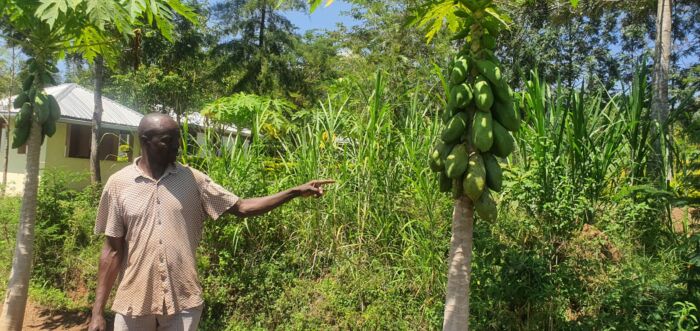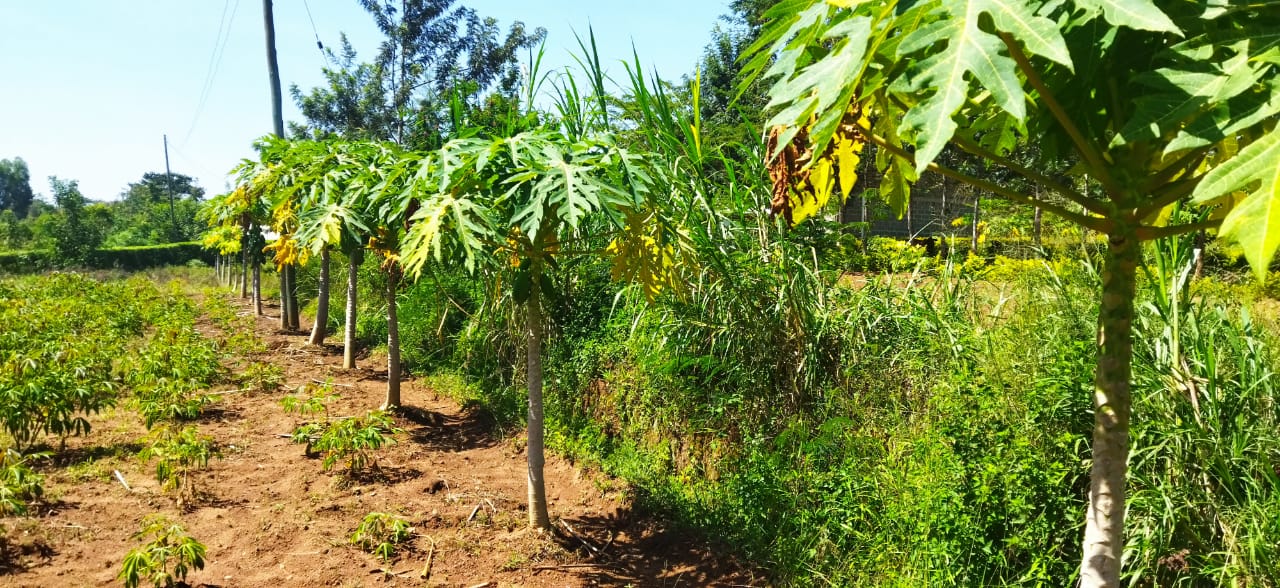Serena farm is a beautiful collage of trees, crops, and fodder. Situated in West Seme, Kisumu County, in a five-acre farm that lies at the foot of a rocky terrain and is home to Julius Ajowi.
From the entrance, we are amazed at how well-organized the farm is. “When did you start farming?” I ask him.
“I can’t remember exactly when. Maybe around five years ago. I had just resigned from my job at a local restaurant where I used to work as a cook to concentrate on farming. He smiles as he says that it was one of the best decisions ever!
“I was earning Ksh 2,000 per month (equivalent of 20USD) at the restaurant, working from morning to night, yet the farmers who were supplying fresh vegetables and other produce were being paid way more money than that, that’s when it hit me that farming if done right could be a lucrative and world’s best job!.
So, Ajowi quit the job, started farming, joined Kaura B Youth Group, which is affiliated with WEGSALO a partner of Vi Agroforestry. It was here that he was trained on Sustainable Agricultural Land Management (SALM), carbon sequestration, and agroforestry value chain addition among others.
Since then, he has been practising agroforestry: the planting of trees together with crops. In addition to over 300 trees on their five-acre farm, he has planted over 40 fruit trees—majorly pawpaw and avocado. You can also see a mixture of crops such as cassava, beans, lentils, bananas, and traditional vegetables. Additionally, he also rears animals such as goats, chickens, and cows. His farm has become a model farm in the area, where other farmers come to learn from. One of the best performing tree seedlings. Every month, he sells an average of 200 trees to other farmers, making between Ksh 20,000-35,000 ($163-185).

The father of seven says adds: “Apart from being able to feed my family with nutritious food, I have been able to pay school fees for the children without much struggle like before. Additionally, we (pointing at his wife Peninnah) have been able to invest in some rental houses for extra cash. I even build a gazebo for the families living in the houses so that they can have a place to rest, hold birthdays, and be happy.”
We take a tour of the rental property and espy some tenants resting at the gazebo. Ajowi happily chats with them and then rejoins us.
Trees are life, I am going to continue planting trees until I have more than a thousand” he concludes. As we close the year, we are encouraged by farmers like Ajowi and Penninah, who use the support given to better the lives of their families and communities at large. Those are the farmers who make us sigh in gladness.
